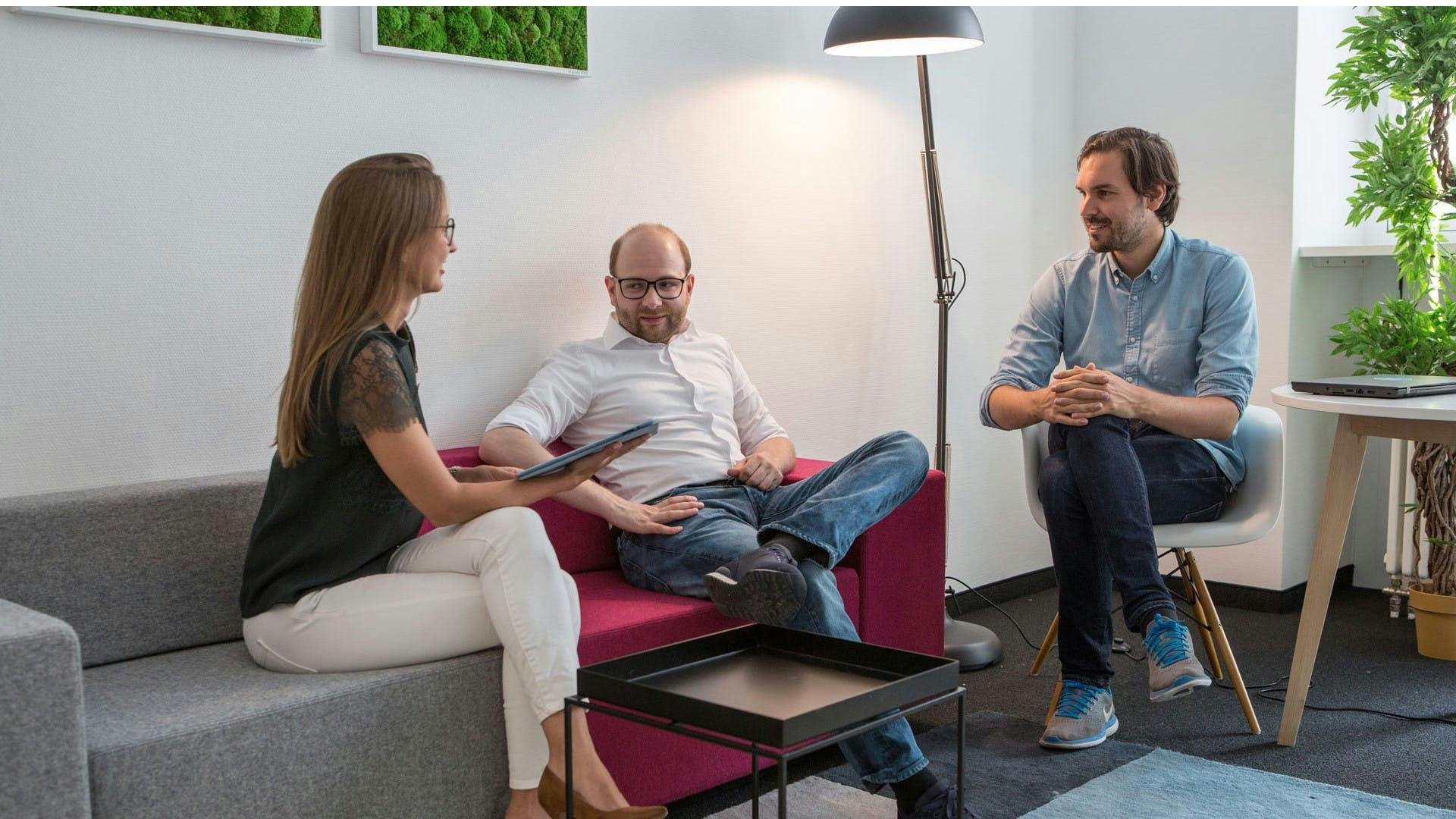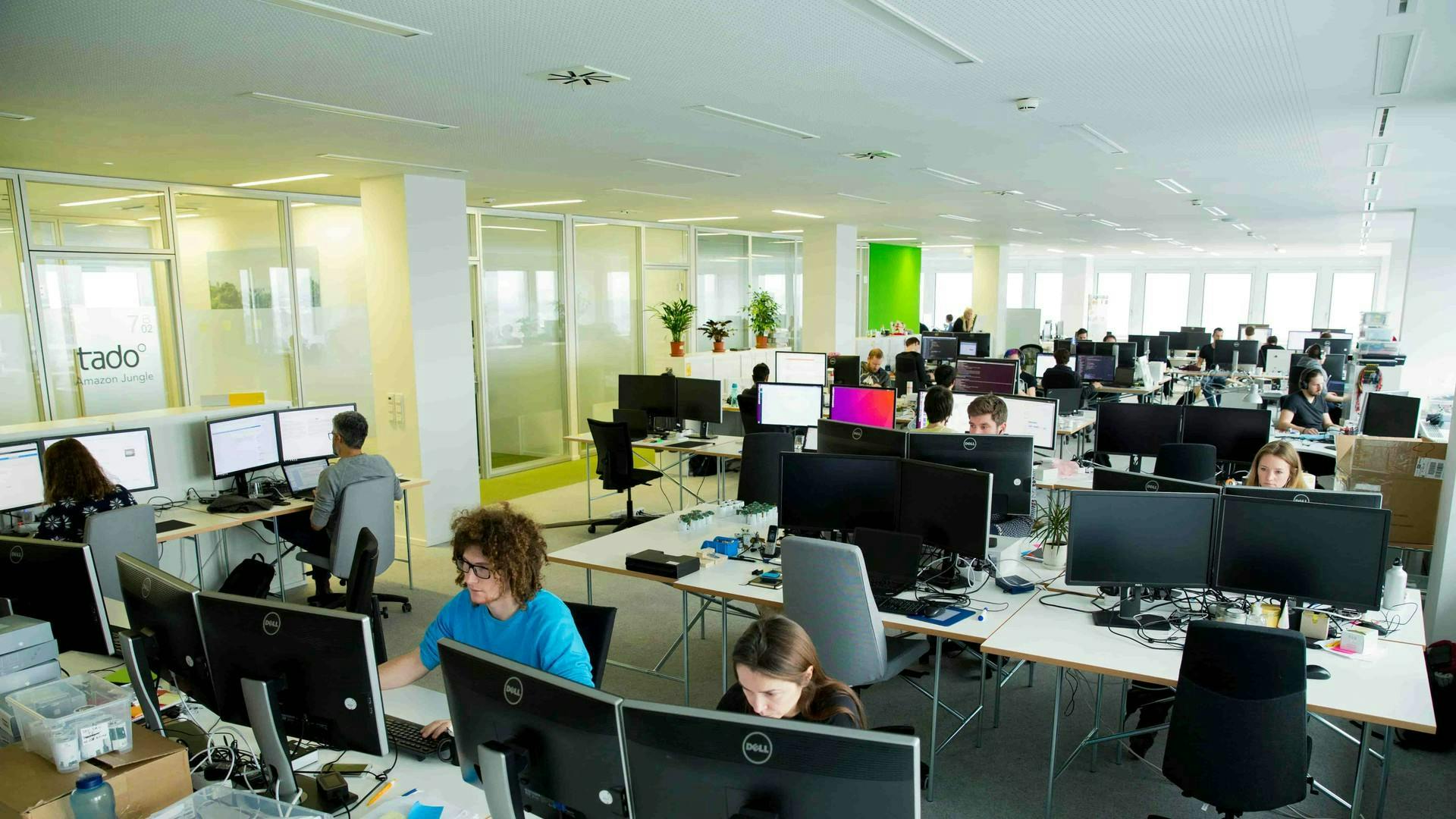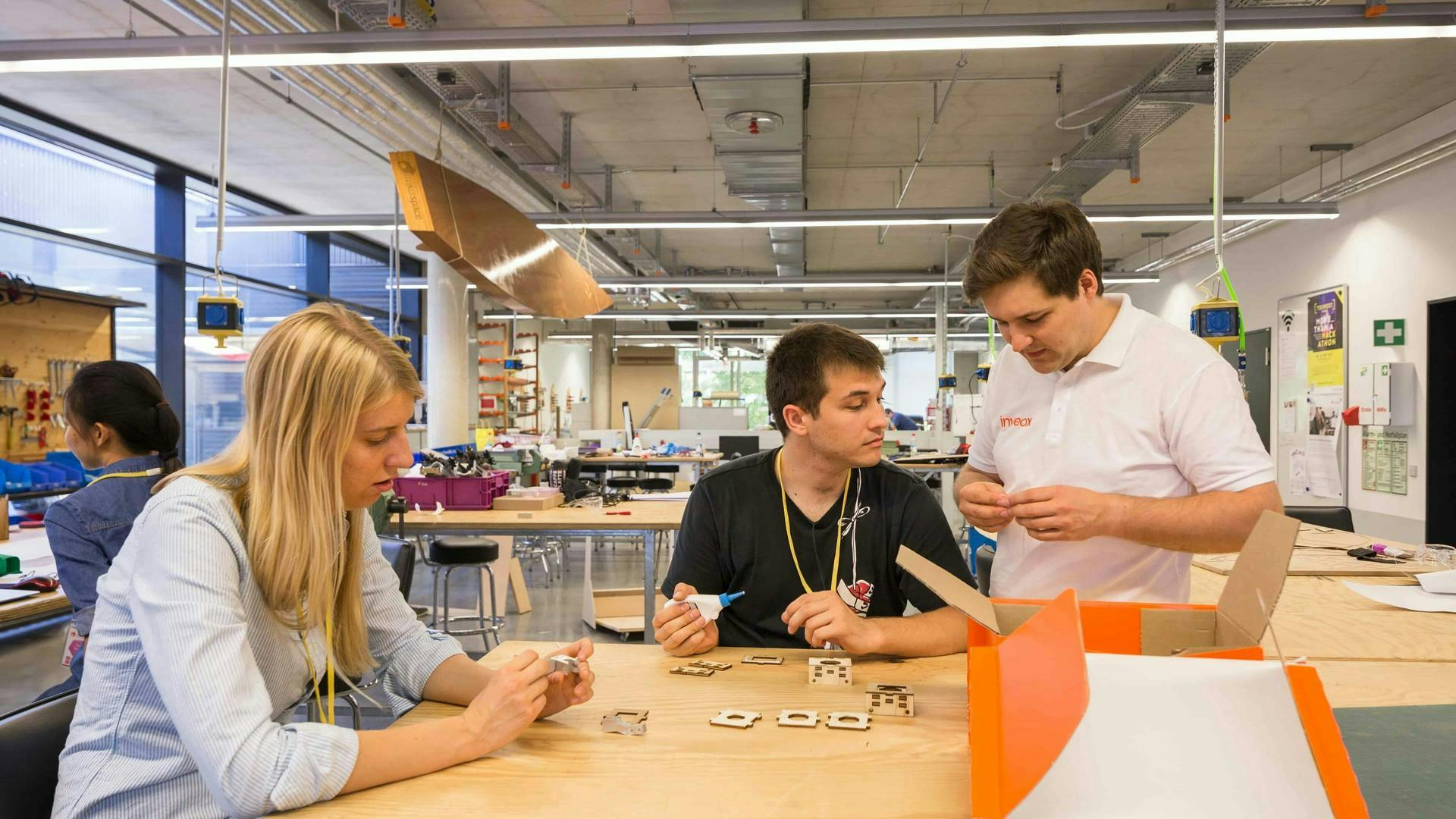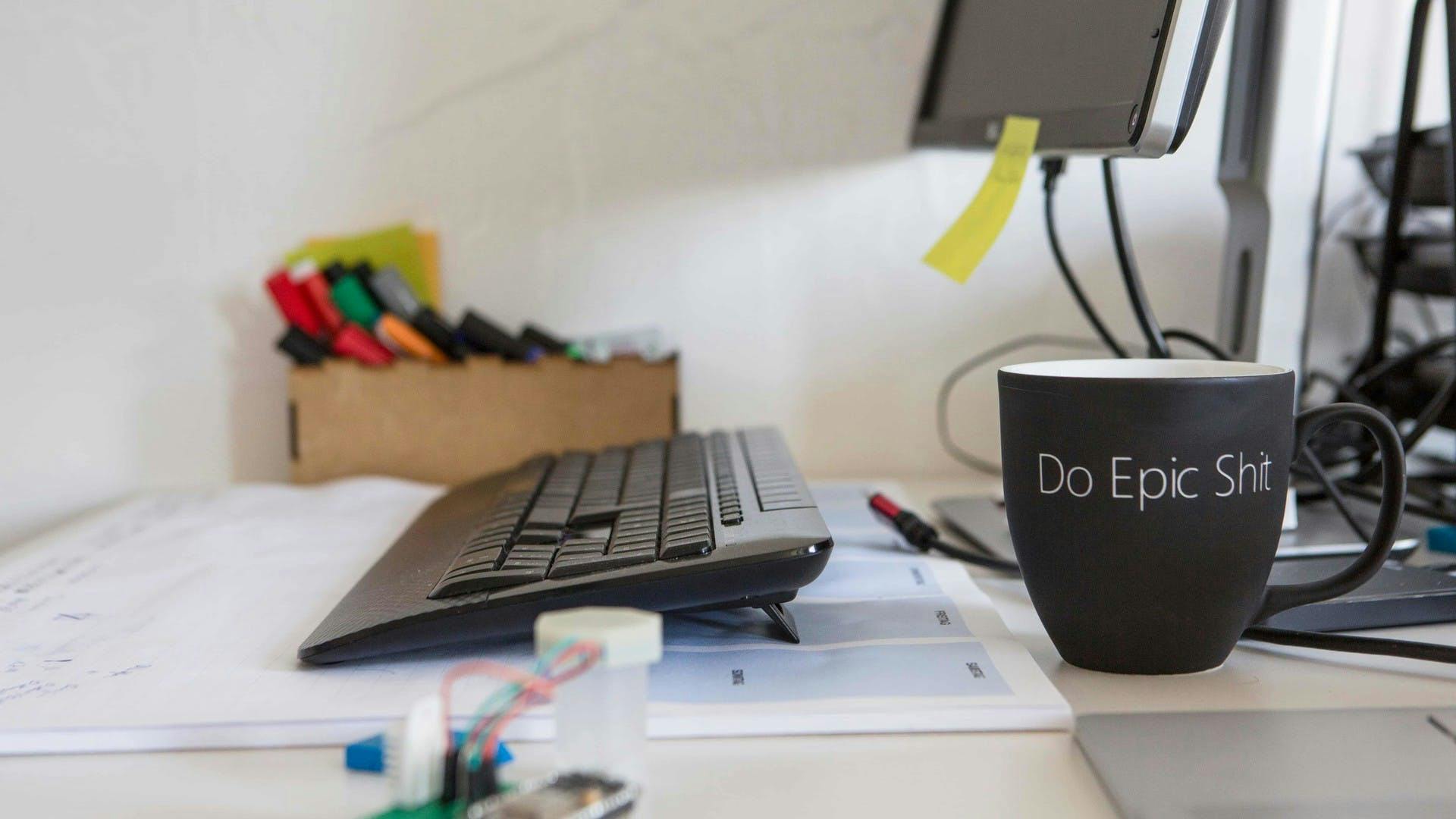Three of the hottest Munich startups in 2017: Where are they now?
rom making it on Forbes lists to gaining unicorn status, these are the updates from three companies which were featured in our very first Munich guidebook.
In the autumn of 2017, we published Startup Guide Munich Vol. 1. Now, with the second edition of our Munich guidebook set to launch in July, we’re checking in with some of the startups featured in our previous edition to find out what they’re up to today.

Cofounder of Celonis, Bastian Nominacher (middle), with colleagues. Photo: Startup Guide
Celonis
In addition to being covered by the BBC earlier this year, Celonis has been deemed one of the five most exciting companies in Munich to watch by Felix Haas, a founder and angel investor and the chairman of Bits & Pretzels, an annual conference for entrepreneurs in the Bavarian capital.
Founded in 2011, Celonis helps companies work more effectively by mining operational data to find inefficiencies and bottlenecks. Having worked with big names like SAP, Siemens, Bayer and Airbus, Celonis ensures their clients save a large chunk of their process costs.
“In the last two years, we’ve been focusing on product innovation, such as our Intelligent Business Cloud, which is an end-to-end SaaS platform, as well as global expansion,” cofounder of Celonis, Bastian Nominacher, told Startup Guide.
Despite our success over the past few years, we’re only just getting started.
Whereas in 2017, Celonis had over 200 employees, the team has now grown to 700 employees. In addition to Germany, they also have offices in the UK, the US and the Netherlands.
A special milestone for the company was when it reached unicorn status in June last year, Bastian added.
And while Bastian told us the last time we chatted that he was responsible for company growth, his role has since changed. He now looks after the EMEA and APAC regions, global partnerships and operations as well as financial and legal matters.
Meanwhile, Bastian’s cofounders, Alexander Rinke and Martin Klenk, are responsible for driving expansion in the US and developing the company’s tech products, respectively.
Having discovered the significant market potential for process mining, the company’s outlook on the future is bright. “Despite our success over the past few years, we’re only just getting started,” Bastian said.

Employees at the tado° office. Photo: tado°
tado°
When we chatted with tado° for our Munich Vol. 1 guidebook, they told us that they’d received 50 million euros in VC investment. Now the total investment they’ve gotten is nearly double that amount. Their investors include Amazon, the European Investment Bank and Siemens VC, among others.
“Our goal is to become the leader in intelligent home climate management through best-in-class hardware, software and services,” Christian Deilmann, cofounder and CPO of tado°, told Startup Guide.
Through its digital system, tado° tailors home usage of energy by allowing homeowners to adjust temperatures remotely, helping them not only conserve energy, but also save money.
Founded in 2011, the company has transitioned in less than two years from a startup to a young business; it has plenty of other updates.
After opening a London office in 2017, which was their first one outside of Munich, their Munich office then grew to a size three times larger than what it was originally. The company’s team has also grown to 180 employees.
Moreover, last year tado° launched new products such as the V2 Smart AC Control and the V3+ Smart Thermostats. Their products, which are compatible with Amazon Alexa, Google Assistant and Apple HomeKit, are available online and in 111 European Apple stores.
Smarter maintenance and repair and the flexible consumption of energy will play an important role going forward from here, Christian said, adding that the goal is to offer new services to make their customers’ lives easier, more comfortable and more affordable.

Cofounders of inveox, Maria Sievert (left) and Dominik Sievert (right). Photo: Startup Guide
inveox
Yet another company born as a startup in Munich which has seen success in the past two years is inveox, a med tech company that digitalizes and automates pathology labs.
By developing solutions for histopathology sample entry, inveox aims to strengthen the reliability and safety of cancer diagnostics. Essentially, they help to ensure that patients receive correct diagnoses and lab techs and doctors are more productive and efficient.
In summer 2017, inveox told us they had just closed a seed investment round of one million euros. In 2018, it was on the Forbes 100 list of the most innovative startups in Germany. In 2019, it was also one of the finalists for the German Innovation Award.
We're not your average company... our employees come to us because they want to change something.
Earlier this month, inveox announced its expansion into Poland with a new location in Kraków. “For our continued dynamic growth, especially in software development, the location [Poland] offers ideal opportunities,” said cofounder and managing partner of inveox, Dominik Sievert.
Having incorporated in early 2017, the inveox team consists of just over 40 employees, though it’s looking to hire more team members for its Kraków office in all business areas, particularly software and product development.
“I think our team members start working with us because we’re not your average company,” Dominik told Startup Guide. “We trust our employees and they come to us for a reason – because they also want to change something. This is more of an impact company.”
Another highlight for inveox is that it was invited by the Bavarian Ministry of Economic Affairs to take part in a delegation trip to the Polish cities of Gdansk, Warsaw, and Wroclaw in June this year.
Main photo of a desk at the inveox office in Munich by Startup Guide

